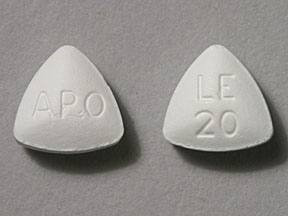
Leflunomide Coupons & Savings Card – Discount Prices from $36.00
Generic for: Arava
My prescription
Edit
20MG, Leflunomide (90 Tablets)
Select pharmacy

CVS
$36.00
COUPON PRICE
Albertsons
$42.75
COUPON PRICE
Walgreens
$45.36
COUPON PRICE
Walmart
$45.54
COUPON PRICELeflunomide savings card
Show this card to your pharmacist
CVS
$36.00
BIN
ID
PCN
GRP
019876
LH02FE2BC9
CHIPPO
LHX
Powered by
More prescriptions for rheumatoid arthritis
More prescriptions for rheumatoid arthritis
Price history for Arava (brand) & Leflunomide (generic)
90 Tablets, 20MG
Average retail price for Arava
Average retail price for Leflunomide
Average SaveHealth price for Leflunomide
Our price history data is based on aggregated prescription data collected from participating pharmacies in America. Our prescription data updates daily to reflect the latest price changes. If you notice a missing data point, it means there wasn't sufficient data available to generate a monetary value for that date.
We analyzed Leflunomide prices for (20MG, 90 Tablets) over the last 12 months. The average retail price was $157.80, while the average price using the SaveHealth discount card was $138.07. That's a savings of approximately 12.50% when using our Leflunomide coupon.
Compared to the generic version, Arava had an average price of $1760.99 over the same time period. With the SaveHealth savings card, Leflunomide is 92.16% cheaper on average than Arava.
*Retail prices are based on pharmacy claims data, and may not be accurate when we don't have enough claims.
Leflunomide dosage forms
Dosage Quantity Price from Per unit 10MG 1 Tablet $2.92 $2.92 10MG 30 Tablets $15.20 $0.51 10MG 50 Tablets $22.85 $0.46 10MG 90 Tablets $34.49 $0.38 10MG 1000 Tablets $117.30 $0.12 20MG 90 Tablets $36.00 $0.40 20MG 1 Tablet $2.91 $2.91 20MG 30 Tablets $14.68 $0.49 20MG 50 Tablets $22.80 $0.46 20MG 1000 Tablets $134.10 $0.13
| Dosage | Quantity | Price from | Per unit |
|---|---|---|---|
| 10MG | 1 Tablet | $2.92 | $2.92 |
| 10MG | 30 Tablets | $15.20 | $0.51 |
| 10MG | 50 Tablets | $22.85 | $0.46 |
| 10MG | 90 Tablets | $34.49 | $0.38 |
| 10MG | 1000 Tablets | $117.30 | $0.12 |
| 20MG | 90 Tablets | $36.00 | $0.40 |
| 20MG | 1 Tablet | $2.91 | $2.91 |
| 20MG | 30 Tablets | $14.68 | $0.49 |
| 20MG | 50 Tablets | $22.80 | $0.46 |
| 20MG | 1000 Tablets | $134.10 | $0.13 |
